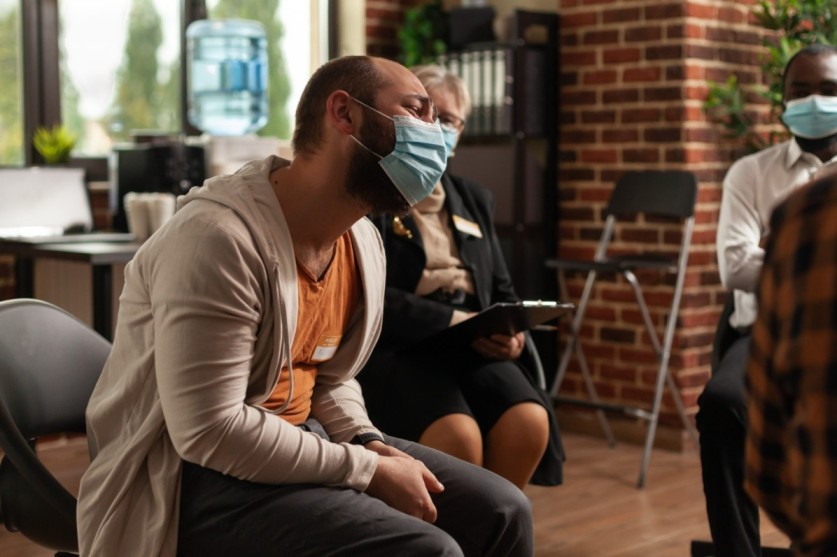How to Choose the Right Group Therapy in Pennsylvania
This article will teach you how to find the best group therapy in Pennsylvania so that your mental health condition can be treated with professional psychiatric support.
Mental health support may be hard to find, especially as there can be various forms of therapies looked upon. Group therapies are one such form that has prevailed not too long ago and is considered by many people to be quite effective. There are many different group therapy programs in Pennsylvania, and no matter which facility a patient uses, they will always be able to find help in their recovery through a community of support. Not all group therapy programs, however, are the same. This guide helps you understand how to choose the right group therapy in Pennsylvania that meets your needs.
Is Group Therapy Right for You? Pros, Cons, and Insights In PA
Group therapy is usually conducted by a therapist or counselor for several people who share some common challenges or experiences. Given the format, participants feel safe to share their thoughts and feelings, learn something from others, and elaborate on certain ways of coping. Below are some major benefits that can be derived from group therapy:
Supportive Atmosphere: Group therapy fosters a sense of camaraderie among the members participating, who may feel supported and understood by fellow individuals who have been in similar situations.
Diverse Perspectives: Listening to different perspectives may give an individual a better understanding of his or her problems and alternative ways of coping.
Cost-Effective: Group therapy is often cheaper than other forms of therapy, such as individual sessions, thus granting more accessibility to mental health support.
Increased Accountability: Having to share experiences within a group often increases the level of personal accountability and commitment toward the therapeutic process.
Development of Social Skills: Members learn social skills, ways of communicating effectively, and ways of coping-useful in therapy and beyond.

Types of Group Therapy In Pennsylvania
As already mentioned, before dwelling on how to select a group therapy program, one has to be introduced to the kind of group therapies available in Pennsylvania. These are:
1. Support Groups
The main objectives of the support groups are to understand and care about the feelings of the member. The support groups may be based on a single issue, for example, substances addiction, grief, or chronic diseases. They are less formalized and mainly deal with sharing experiences and feelings.
2. Psychotherapy Groups
Psychotherapeutic groups are lead by a licensed mental health professional, which goes further in dealing with psychological problems. The members can come up with personal goals, learn how to cope with particular challenges, and go through other forms of therapeutic activities.
3. Skills Development Groups
These groups highlight the development of specific skills, such as managing stress, communication techniques, and mindfulness practices. The groups provide hands-on tools that participants may find useful in their day-to-day living.
4. Psychoeducational Groups
Psycho-educative groups blend education and therapy. Their discussions are informative regarding many aspects of mental health and disorders, thus enabling participants to understand them better and live through them more effectively.
5. Process-Oriented Groups
In process-oriented groups the focus is on the interaction of the members within the group. Members are encouraged to share feelings about one another and the process of the group itself. Often times very valuable information and growth surface from this style of group dynamic.
Things to Consider When Choosing a Group Therapy Program in PA
Choosing the right group therapy program is not something that should be taken lightly. Here is a list of important things to consider:
1. Type of Therapy
Identify what type of group therapy will best suit your needs. Are you looking for support, the learning of skills, or an in-depth psychological exploration? Knowing what you want will help you in selecting the right group for yourself.
2. Qualifications of Therapist
Ensure that the therapist leading the group is licensed and qualified to provide mental health services. In the state of Pennsylvania, therapists must have such credentials as a Master’s in Psychology, Social Work, or Counseling, with appropriate licensures to include LPC, LCSW.
3. Group Size
Consider group size: smaller groups of 5-10 participants allow for an atmosphere that is more personal, and deeper connections and discussions within. While larger groups may provide a greater variety of perspectives and experiences, they can sometimes be less personal.
4. Group Composition
Look at the composition of the group. Are its members facing similar issues or experiences? Homogeneity may help build empathetic understanding, while diversity may broaden the insights shared.
5. Session Structure
Some may be more structure-based, while others may incorporate specific therapeutic exercises or an educational component. The format will help you to know if the group will suit your taste or not.
6. Times and Locations
Consider how convenient the location of the group and schedule of meetings will be. Do the sessions take place in person or virtually? Ensure time and place work for you and your comfort level.
7. Fees and Insurance
Check into the cost of the group therapy sessions and whether it is covered by your insurance to make an informed decision without added stress.
8. Trial Sessions
Some group therapy programs offer trial sessions or an initial consultation. Take these opportunities to get a sense of the group dynamics and if it feels like a proper fit for you.

Questions to Ask When Evaluating Group Therapy Option
Once you get some names of possible group therapy programs, it is well worth your while to call and ask the following questions to learn about the group program you are interested in being a part of:
What experience does the therapist have leading a group?
Understanding the background of the therapist will give you an idea about their skill level and orientation.
What is/are the group’s goal?
Describing the group’s goals should help you understand how those goals may or may not fit with your own goals.
How long will the group last?
Knowing how long the sessions are and how many weeks the group meets can help you when you plan.
How do members handle issues of confidentiality and privacy?
Below, are ways it should be handled
Ensure the group has clear policies that exist to safeguard the privacy and confidentiality of the members of the group.
What if there is a conflict or problem in the group?
Knowing how the group manages conflict may help you feel secure in the therapeutic process.
To locate group therapy programs in the state of Pennsylvania, try one of the following:
1. Mental Health Organizations
Contact local mental health organizations. These may include the Pennsylvania Psychological Association or the National Alliance on Mental Illness-NAMI of Pennsylvania. They can provide a referral to area therapists and group programs.
2. Insurance Provider
Call your health insurance provider and ask what kind of group therapy options are covered in Pennsylvania. They would be able to give you a list of all providers who are considered in-network and may provide group services.
3. Online Directories
Utilize online directories for therapists. Some of the common ones include Psychology Today or TherapyDen. These websites will allow you to narrow down by location, type of therapy, and specialty.
Obtain recommendations for group therapy programs from your general physician or psychiatrist. They may refer you to one according to your needs and liking.
5. Community Centers
Community centers and mental health clinics in your area most often also provide group therapy programs. Sometimes, inquiries with these institutions will reveal what is in store for the prospect.
The Role of the Psychiatrist in Group Therapy
Although group therapy is primarily led by licensed therapists, psychiatrists also have room for involvement in the process. How? Well, this is how it goes:
Medication Management: In those mental health disorders where medication is indicated, a psychiatrist can actually prescribe and manage medications while participants go through group therapy.
Assessment and Evaluation: Psychiatrists could conduct extensive assessments to find out whether group therapy would work for the needs of each patient.
Collaboration with Therapists: Very often, psychiatrists will also collaborate with therapists so that medication and other therapies align to assist a patient in recovery.
Crisis Management: Sometimes, as in the case of a participant mental health crisis, immediate interventions could be afforded by a psychiatrist.
The right group therapy chosen for your needs could make a great difference in your mental health journey. By understanding the type of group therapy available to you and keeping some important factors in mind, you can make an informed decision that will serve you best. Remember, seeking support is a step crucial to the healing process, and with a proper program in place, group therapy will provide that community and foundation necessary for further growth and recovery.
Frequently Asked Questions (FAQs) about Group Therapy in Pennsylvania
What is group therapy?
Group therapy is a form of psychotherapy where a small group of people meet on a regular basis with the help of a professionally prepared mental health professional. It provides an encouraging space for sharing experiences and solving problems.
Who is qualified for group therapy in Pennsylvania?
Group therapy helps people with anxiety disorders, depression, trauma, and a wide range of other issues. Group therapy allows others to realize that they are not alone, builds camaraderie, and reinforces that they do have peers.
How do I find group therapy?
There are many different options for group therapy sessions throughout Pennsylvania from a wide array of mental health professionals and clinics. It is important to do research locally and discuss options with a psychiatrist to find an appropriate group.
What might I expect from a session?
In a session, there is talking among participants, sharing of personal stories, and feedback within confidentiality and safety for the interests of healing and growth.
If any of you are thinking of group therapy, take the time to research options and ask questions so that your mental health is handled with consideration. If you get the proper support, you will be able to ride the waves of mental illness and come out stronger on the other side.